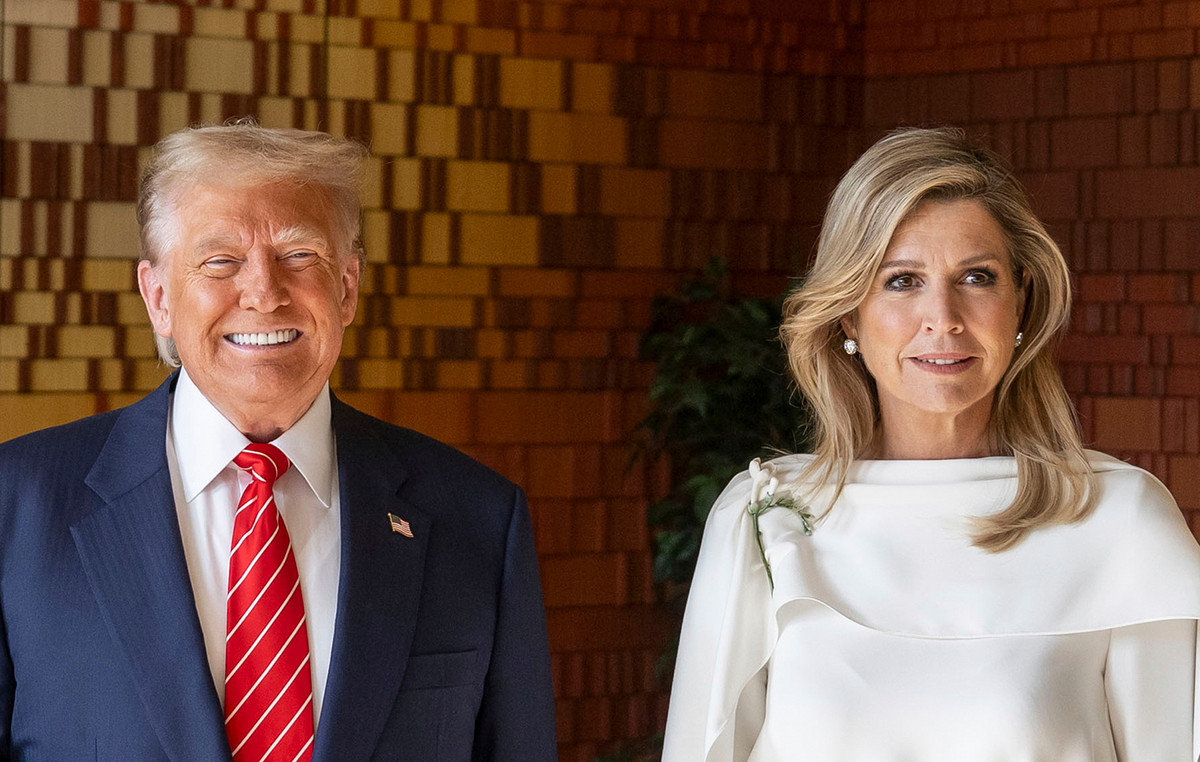The president-elect of the United States, Donald Trump, will take office on January 20, in a ceremony that should bring together important figures in American politics. Trump’s opponent in the 2024 race, Kamala Harris, will be present as vice president of the current administration.
President Joe Biden also confirmed that he will attend, despite Trump not participating in the Democrat’s inauguration in 2021. The incumbent’s presence is not mandatory, but it is a long tradition in the United States’ transition of power.
This tradition has been broken only four times in the history of American politics. Check it out:
John Adams (1801)
The election of 1800 was one of the most bitter in the country’s history. Incumbent John Adams sought a second term, but faced a powerful challenge from his own vice president, Thomas Jefferson. Even worse for Adams, popular opinion turned against his defense of the Alien and Sedition Acts of 1798, which restricted the activities of foreign citizens and limited freedom of speech and the press.
The voting process itself was equally complicated. Before the passage of the Twelfth Amendment in 1803, which regularized the selection process, delegates voted not for a single ticket, but twice for individuals. The person with the most votes won the presidency, and second place won the vice-presidency.
The result was a tie between Jefferson and his running mate Aaron Burr, which meant the decision passed to the House of Representatives. Relations between Adams and Jefferson remained quite cordial. Jefferson dined amicably with John and Abigail Adams at the White House that January.
Would a reconciliation be possible? “Sir, the event of the election is in your own power,” Jefferson pleaded with Adams in early February. But Adams refused to interfere with the House vote. After more than 30 votes, the Chamber of Deputies finally ruled in favor of Jefferson.
Adams chose not to attend his successor’s inauguration, departing the nation’s capital at 4 a.m. on March 4, 1801. In avoiding Jefferson’s inauguration, Adams was perhaps motivated by a desire to cool the political temperature in the capital.
The peaceful transfer of power from Adams to Jefferson was derisively dubbed the “Revolution of 1800.” After delivering a conciliatory inaugural address, Jefferson began the tradition of marching from the Capitol to the White House. He served two terms.
John Quincy Adams (1829)
John Quincy Adams followed in his father’s footsteps in many ways. As secretary of state to retiring president James Monroe, he sought the rightful presidency in 1824. But he faced several opponents, including Andrew Jackson and Henry Clay.
Jackson posed the most serious threat. Quincy Adams had previously been a political ally of Jackson, but the relationship cooled considerably when the two contested in 1824.
Jackson won the most popular and electoral votes, but did not win a majority in either. With the election at stake, Clay’s delegates switched their support to Adams, and the House of Representatives voted for Adams as the next president. Jackson declared that a “corrupt negotiation” had occurred and promised to run again in 1828.
The 1828 election featured a contentious rematch between the two men, with Jackson emerging as the victor this time. Quincy Adams attempted cordial relations with the new president, although without success. He offered the use of the White House for the inaugural festivities, but Jackson declined the proposal.
Instead, Quincy Adams left the White House on the evening of March 3, the day before Jackson’s inauguration. Like his father, he purposely chose not to attend his successor’s inauguration.
Andrew Johnson (1869)
Vice President Andrew Johnson assumed the presidency following the assassination of Abraham Lincoln in 1865. In turn, the new president pledged to obstruct the will of the Republican Congress at every turn. Despite popular appeals, he was unable to secure the Republican Party’s nomination for president in 1868 and was even impeached by the House of Representatives.
In November 1868, the country elected General Ulysses S. Grant, Johnson’s enemy, to the presidency by a wide margin of electoral votes. In the popular vote, Grant won by 300,000 votes, thanks to nearly half a million freedmen in the Southern states.
Despite Grant’s victory in the Electoral College, Johnson refused to attend the inauguration on March 4. Instead, he remained at the White House to sign laws. Likewise, Grant rejected the idea of traveling in the same carriage as Johnson.
The Grant administration was marked by his policy of vigorous support for Reconstruction in the South. He was elected in 1872 to a second term as president. With the exception of Grover Cleveland’s two terms, Republicans dominated the White House until 1913.
Donald Trump (2021)

Near the end of his term, the then American president, Donald Trump, announced on his social networks that he would not attend Joe Biden’s inauguration ceremony on January 20, 2021.
On the morning of January 6 of that year, Trump gave a fiery speech to his supporters on the National Mall, where he publicly rebuked then-Vice President Mike Pence for not going along with his scheme to reject the electoral votes received by Joe Biden.
The Democrat had defeated the Republican in the 2020 presidential elections, but Trump did not recognize the result and claims to this day, without evidence, that there was fraud.
Even before the speech ended on the National Mall, Trump supporters began to force police barriers and invade the Capitol, the main symbol of political power in the country, in the capital Washington, DC. They attacked security officers and threatened to hang Mike Pence.
Amid the chaos, the joint session of Congress that would confirm Biden’s victory was interrupted. Parliamentarians had to leave in a hurry because of the high risk of violence.
Meanwhile, Trump supporters destroyed the offices of parliamentarians, including that of the speaker of the House at the time, Democrat Nancy Pelosi.
Trump waited hours before making a public statement to call for an end to the attacks.
The Congress session that certified Joe Biden’s victory resumed on January 7, and the president took office on the 20th. Biden’s inauguration ceremony was reduced due to isolation measures against the Covid-19 pandemic and the authorities’ concern about security in Washington.
This content was originally published in Is Biden required to go to Trump’s inauguration? Remember when tradition was broken on the CNN Brasil website.
Source: CNN Brasil
Bruce Belcher is a seasoned author with over 5 years of experience in world news. He writes for online news websites and provides in-depth analysis on the world stock market. Bruce is known for his insightful perspectives and commitment to keeping the public informed.







